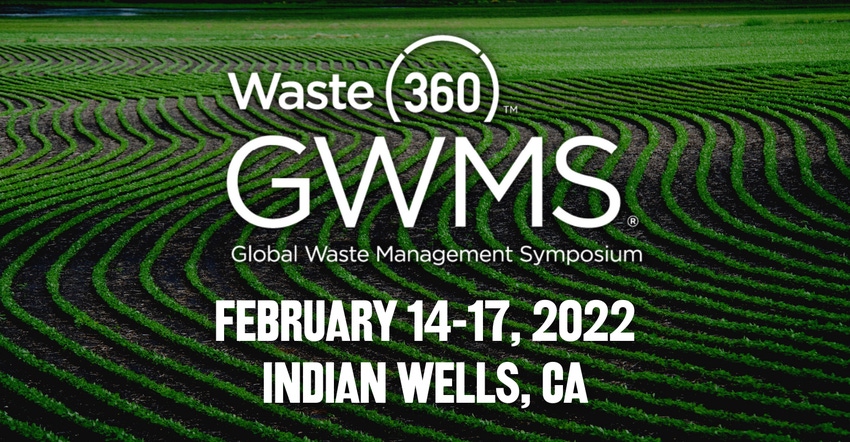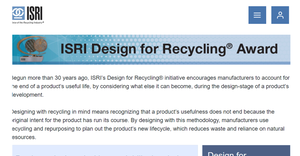On day two of the Global Waste Management Symposium in Palm Springs, Calif., James Little of Waste Connections opened the morning with a keynote that expounded on company projects and industry trends.

The sunlight in Palm Springs, Calif. beamed down over attendees on the first full day of conference sessions at the Global Waste Management Symposium.
James Little, executive vice president, engineering and disposal, Waste Connections, opened the morning with a keynote that expounded on company projects and industry trends.
Speaking to a packed ballroom, he began, "this isn't just about landfills. We're at a very dynamic period and waste management in the evolution of this business, and it's happening right now. Some of the things that we've talked about for a decade like PFAS - the train is finally here, right? Regulations are hitting us and we're starting to have to adjust to it in design and other activities."
He told the audience that just a few years ago, Waste Connections actually started to seriously evaluate its carbon footprint with an eye towards minimizing that footprint in North American emissions. A one-size-fits-all solution is just a pipe dream when it comes to reducing solving environmental challenges and meeting ESG goals, but it does involve the best use of capital.
Because of the changing regulatory environment, small rural market landfills are facing operating cost pressures and are struggling to run properly in the present day. Little said that the number of landfills along with regionalization has significantly impacted the industry.
"While recycling has closed the gap from the increase in solid waste generated, the amount disposed in landfills has been very consistent through time and remains," he indicated. "Again, this is all happening at a time when permitting new airspace is becoming more and more difficult when environmental justice issues are starting to rise up and become an encumbrance to developing new landfills."
Following a detailed presentation about how Waste Connections is managing evolving environmental mandates, Little spoke about China's National Sword policy and how the waste and recycling industry has been advancing infrastructure to boost recycling in the United States.
As the fiber price collapsed the fiber price in the United States shortly after the policy was enacted, mills stopped taking products at any cost, which led to an increase in landfilling. The waste industry then imposed processing fees at facilities to cover processing and capital costs.
"When you couple that with equipment innovation, you get where we stand today with a very investable and very robust recycling industry," Little said. "We really are in a different place than we've ever been, at least in the 35 years that I've been in the business. We - Waste Connections, Waste Management, Republic - have all committed significant capital resources towards the highly automated recycling dream of the future."
Along with China Sword, Little described how extended producer responsibility (EPR) adds a "significant stakeholder" to the mix as more recyclable products emerge from the packaging industry.
Little expected recycling markets will continue to expand, with the "recycler of the future" operating with a fraction of the current workforce. Between new stakeholders as a result of EPR and the technological advancements from the past five years, a lot of change is happening and is on the way.
"We're not talking about something that's going to happen five years or 10 years from now," he concluded. "There's been no time for practitioners, engineers, scientists like there is right now with all the changes occurring in our space. For that, I'm excited and I think we're going to have a very, very sustainable industry going forward because of the change that's happening right now."
About the Author(s)
You May Also Like




